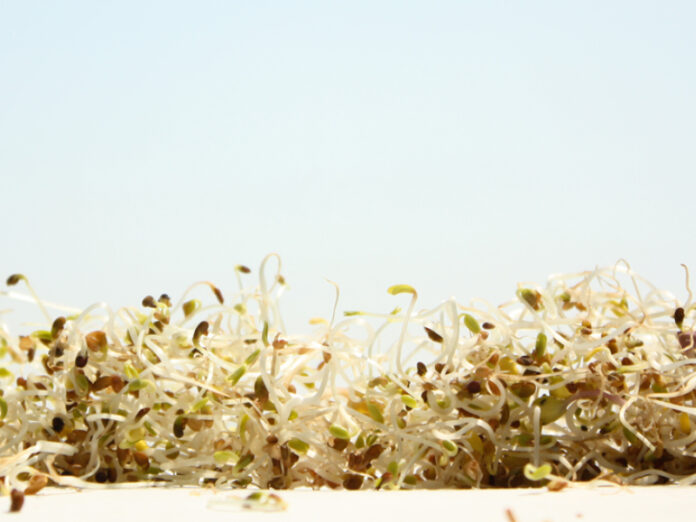
Sprouting might seem like a new-age, hippie-food craze that made it to the mainstream along with kale and granola. The truth is, sprouting has existed in the culinary traditions of Asian and European cultures for thousands of years, revered for its immense nutritional value.
Sprouts are literally the sprouts of baby plants and there are hundreds of sprouting seeds to try. Sprouts include the germinating seeds of nuts, beans, and grains as well as the ubiquitous alfalfa. All they need is a little water and love. And you can eat sprouted seeds raw, preserving their nutritional richness.
Enzymes in a sprouted seed make it easier for you to digest and absorb its nutrients. Sprouts also have increased fibre, which helps eliminate toxins from the body, assists digestion and regulates bowel movement. Sprouts can also aid in weight loss, increase immunity, improve blood circulation, heart health, cancer prevention and are considered anti-aging. Athletes should note that protein in a sprouted seed or nut is more easily absorbable, helping to build lean muscle mass. Other nutrients that are significantly made more bio-available are carbohydrates that are turned into simple sugars, vitamin A (beta-carotene), C, E, K, calcium, iron, magnesium, zinc, omega 3 fatty acids and antioxidants. All are key nutrients for a healthy, vibrant, thriving life.
Plus, you get more bang for your buck with sprouting. A cup of seeds can yield up to 24 times in volume in a matter of days – dependent on the seed chosen!
Get Sprouting
Sprouting is simple and doesn’t take much time. There is a similar method for most seeds, nuts, grains and beans, though the length of time for soaking and growing may vary. By soaking the seeds and sprouting them, anti-nutrients, otherwise known as enzyme inhibitors that prevent the seeds from releasing their full nutritious potential, are released into the water. When sprouting at home, make sure you drain this unhealthy water and rinse your seeds very well afterwards. By consuming the enzyme inhibitors, your body has to work extra hard to break down the seed. A sprouted almond is much easier to digest than a raw almond.
What you’ll need:
- Organic seeds to sprout – be sure to check the expiration date.
- A large, wide mouth mason jar, which will be your growing receptacle.
- A mesh screen or clean cloth to serve as its cover.
- A rubber band to hold the cover in place.
Alternately, there are specialized multi-tiered sprouters that allow you to sprout different seeds at the same time and provides the perfect conditions for light exposure, moisture drainage and air circulation for growing sprouts. They sell for about $30.
Soaking
After the soaking period is done, cover the jar with the screen and hold the cover in place with a rubber band. Pour out the seed soaking water and rinse with fresh water. Drain the jar thoroughly by inverting the jar at an angle, letting the water flow through the screen. Do not submerse the seeds.
Rinsing & Draining
Repeat the rinse and drain procedures once in the morning and once in the evening until the sprouts are ready for harvest. Upon harvest, put sprouts in a clean covered jar.
Enjoy sprouts as a side dish or, for maximum benefit, fresh with salads, sandwiches or alone as a snack.
Be cautious in preparing and consuming sprouts. Bacterial growth and risk of salmonella and e-Coli may occur if not prepared properly. This can be a concern when purchasing store-bought sprouts, if jars and materials used are contaminated. It is best to source your seeds from reputable suppliers and ensure cleanliness during preparation.
Sprout Type: Quantity | Soak | Rinse & Drain
Alfalfa seeds: 3 Tbsp. | 8 to 12 hours | 3-6 days
Broccoli seeds: 3 Tbsp. | 8 hours | 3-6 days
French lentils: 1 cup | 24 hours | 1-3 days
Mung beans: 1 cup | 24-36 hours | 1-3 days















